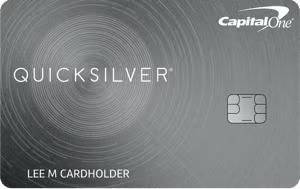Getting your first credit card can be an important step in building your financial foundation. A few years of using credit cards properly may give you good enough of a credit history to take out a mortgage.
Responsibly using a starter card will also allow you to upgrade to credit cards which offer more rewards and perks. Keep reading to learn what questions you should ask before you get a credit card and to see our picks for the best first credit cards for students.
If you just want to check out the cards, compare student credit cards here >>
Best First Credit Cards For Students
Your first credit card isn’t going to be a flashy credit card with a big signup bonus. However, they can help you build credit quickly. One of the recommended cards is a secured credit card which means it requires a refundable deposit to guarantee the amount you borrow.
Compare cards here >>>
Bilt Mastercard®

The Bilt Mastercard® offers an impressive level of rewards that rivals even many standard credit cards. They even offer 1x points on rent payments without the transaction fee, up to 100,000 points each calendar year.
Cardholders can also earn 2x points on travel and 3x points on dining.
You can also earn double points on “Rent Day”, which is the first of the month.
Check out Bilt Rewards here >>
Current Build Card

The Current Build Card isn’t a credit card, but rather a checking account and debit card that helps you build your credit.
Current offers a monthly fee-free checking account that offers great perks, like early paycheck deposits, cash advances, and points on transactions.
There are no monthly fees, no annual fees, and you can even earn interest on your money. Plus, you’re building credit for each time you use your card.
Check out the Current Build Card here >>
Chase Freedom Rise℠

The Chase Freedom Rise℠ card is a great first credit card because you can increase your odds of being approved by having a total available balance of at least $250 in Chase checking or savings accounts.
This card also offers 1.5% cash back on all eligible purchases, and you can earn a $25 statement credit after signing up for automatic payments within the first three months of opening your account.
Compare cards here >>>
Capital One Quicksilver Rewards For Students

The Capital One Quicksilver Rewards For Students charges no annual fee and earns unlimited 1.5% cash back on all purchases.
The card also has a new cardmember bonus of a one-time $50 cash bonus once you spend $100 on purchases within 3 months from account opening.
Capital One also promises to begin considering accounts for credit limit increases in as little as 6 months. That’s helpful because a higher credit limit automatically leads to a lower credit utilization rate as long as your spending stays the same.
Compare cards here >>>
Capital One Secured Mastercard

The Secured Mastercard from Capital One could be a great first credit card for high school students. It requires a minimum refundable deposit of $49, $99 or $200.
Regardless of the deposit that you set, your initial credit limit will be $200. So it’s possible to get approved for a partially secured version of this card right off the bat.
You won’t be charged an annual fee while owning the Capital One Secured Mastercard, but you won’t earn any rewards either. As it does with the Journey Student Credit Card, Capital One says that it automatically reviews Secured Mastercard accounts for a credit limit increase as early as 6 months after card approval.
Compare cards here >>>
Are You Ready To Get A Credit Card?
Simply being an adult doesn’t necessarily mean you’re ready to get a credit card. Before you get a card, here are a few questions you may want to ask yourself.
Do I Have A Way To Pay Off The Card?
Credit cards aren’t free money. They need to be paid off. And with average interest rates at nearly 15%, it’s ideal to pay them off in full each month. That means every expense you put onto the card needs to be paid off before interest accrues.
Paying off a credit card requires money. To get money, you need a job or a business that produces income. No job? Start a side hustle before you take on a credit card. You don’t want to tempt yourself to spend money you can’t repay.
Will I Be Tempted To Overspend?
It can be tempting to use a credit card as a license to spend money. But if you overspend on a credit card, it may take years to dig out of the debt. And parents don’t always have the financial means (or desire) to help their children dig out of a hole that they made through irresponsible money management.
If you don’t trust yourself with a credit card, don’t get one. As you gain more experience with money management, you’ll develop skills that will keep you from overspending. Wait a few years if you don’t trust yourself today.
Do I Understand Credit Scores?
As a college student, you can’t expect to qualify for the best credit card offers. You’re unlikely to rack up massive signup bonuses or take free trips to Bali. That just doesn’t typically happen right away. The point of your first credit card is to help you build your credit score.
Your credit score is a measure of how a bank views your creditworthiness. The higher your score, the more likely it is that a bank will lend you money. When you have no open lines of credit, you have no credit score.
After opening your first credit card, you’ll have a credit score. You must make good credit decisions with your first card. That means you need to pay your credit card bill ON TIME every month.
You’ll want to keep your credit utilization below 30% at all times. If your credit limit is $500, keep the total spending on the card to less than $150. You don’t have to pay interest to boost your score. Good credit behavior will raise your credit score over time.
Tips For Finding Your First Credit Card
Finding the best first credit card for students can be a real challenge. When you don’t have any credit open, you have no credit. That often means you’re invisible to a bank.
Without a credit history, it’s difficult for banks to judge whether you’re a good credit risk. But here are a few tips to help you find your first card.
Apply While You’re In College
Credit issuers love developing a relationship with students while they’re in college because they have a long credit history ahead of them. Also, if students get over their head in debt, their parents are often willing to help them out.
For these reasons, several credit cards are specifically targeted at college students. The credit card companies who offer these cards know that the majority of their applicants aren’t going to have a long credit history and they’re OK with that.
If you’re currently enrolled in a post-secondary program, you may have a much easier time qualifying for a college card than you would for a standard unsecured card after you graduate. Just know that you won’t be able to apply without a cosigner unless you’re able to verify that you have income.
Ask A Parent To Make You An Authorized User
Very few credit cards have options for cosigners. But if your parents have good credit habits, they may be able to make you an authorized user on their credit card.
When you become an authorized user, you inherit your parent’s good behavior on your credit report. This is a good hack but it can backfire if your parents have poor credit or become unable to pay their bills.
Look For Secured Credit Cards
A secured credit card is a credit card backed by a cash deposit. These cards often have low credit limits, but they reduce the bank’s risk if you default. Look for a secured card with a “graduation” program where the deposit is returned after a year of on-time payments.
Don’t Expect Massive Rewards At First
Your first credit card is all about establishing credit. This can take anywhere from a year and a half to three or more years depending on how often you use the card.
Until you have a good credit score, don’t bother applying for credit cards with big sign-up bonuses or high rewards. A 1% to 3% rewards rate is just fine while you’re getting started.
Final Thoughts
The first credit card for students usually isn’t as exciting as some of the most popular travel cards or mainstream cash back cards. But an unassuming start can help you improve your credit and develop a strong financial foundation.
It’s important to understand the dangers of credit cards, especially how they can lead to overspending and debt cycles. But if you’re conscientious with your first credit card, you’ll build positive credit history. And that could help you qualify for the best rates on mortgages, car loans, or other forms of financing, down the road.
Create your very own Auto Publish News/Blog Site and Earn Passive Income in Just 4 Easy Steps







